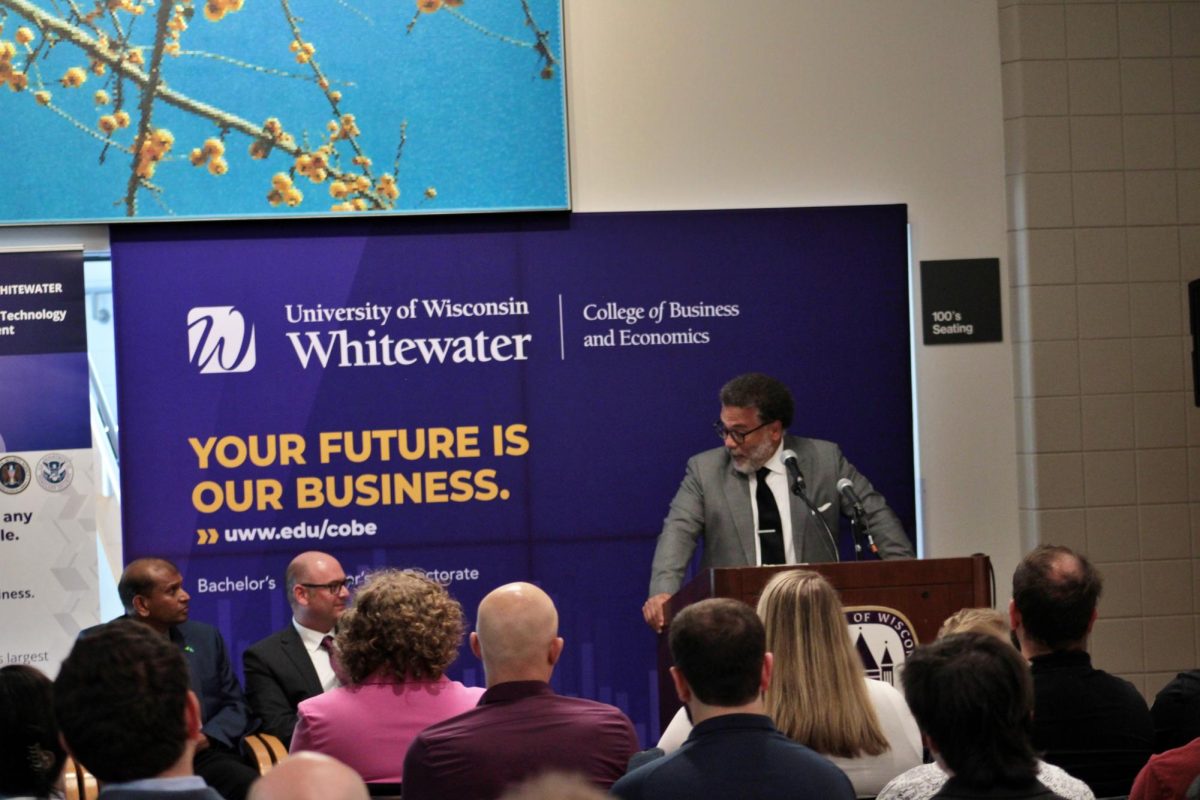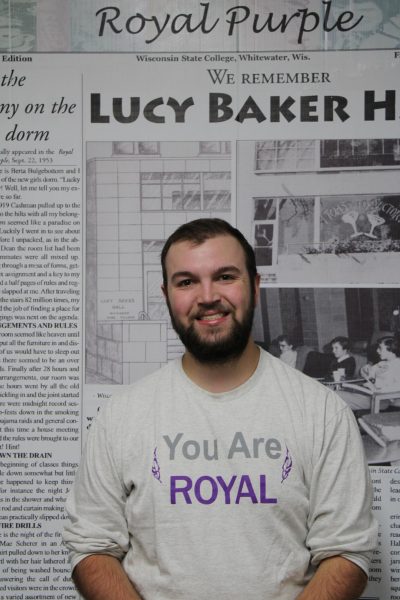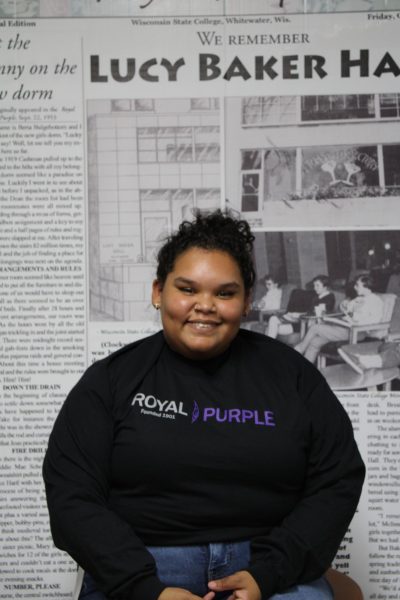As the Internet expands day by day, threats to security become more and more prevalent. This includes threats to government, schools, hospitals and small businesses. To counter this, President Joe Biden released the National Cyber Workforce and Education Strategy in July of 2023.
The National Cyber Director Harry Coker and the Acting Director of the Office of Personnel Management (OPM) Rob Shriver visited the University of Wisconsin-Whitewater Wednesday, Oct. 3 to discuss and praise the practices the university uses to promote cybersecurity talent to build up the needs of the nation. This visit kicked off Cyber Awareness Month.
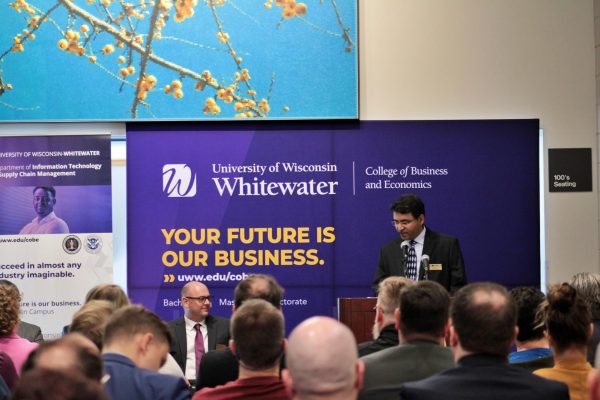
“I’ve been inspired here at the University of Wisconsin-Whitewater because you all are making sure that students are trained, inspired and well on their way to joining our nation’s cyber workforce,” said Coker.
Coker and Shriver visited to talk about the overwhelming needs of workers in the cybersecurity field. There are over half a million open cyber jobs, with about 5,000 in Wisconsin, and 3,000 in the Janesville, Madison and Milwaukee area.
“In order to protect the nation and the critical digital systems that underpin our way of life, we must have a large, robust cybersecurity workforce,” said Coker. “… We need more people being trained and educated in cyber-related fields. We need more ways for them to join our ranks. We need people from every community to have a pathway into a cyber-based career.”
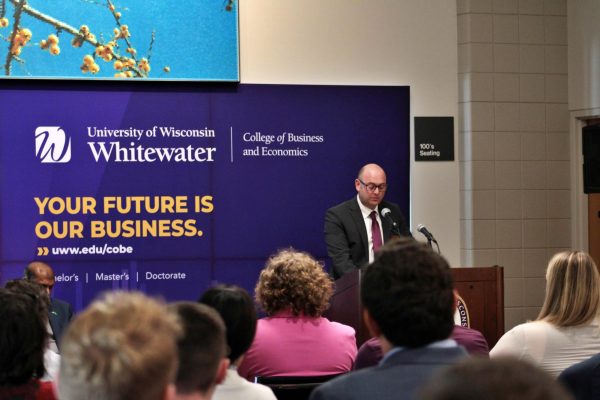
Shriver stated that with the large gap in the workforce, there needs to be more training for experience instead of hiring for experience.
“I don’t think we’re going to just hire our way out of this,” said Shriver. “Really, what we need to do is up the confidence for all of our workforces on cyber and make sure we are focusing on training that will allow for new skill-developing that will keep up with emerging threats because they are changing all the time.”
After Coker and Shriver finished talking, a panel of cybersecurity students consisting of MayLin Freitag, Paige Lenz and Shamik Patro, moderated by graduate student Michael Rose, took the stage. They talked about their experiences with cybersecurity and their experiences with it.
“I didn’t know what cybersecurity was until I joined the cybersecurity club,” said Lenz, a junior from Bloomington, Illinois. “You get to learn theory, get to do hands-on experiences, and get to compete in competitions. It’s helped me a lot with my experiences here.”
Coker and Shriver also visited the university’s Hawk Internship and Career Fair, where over 170 employers visited and talked with students and alumni looking for an internship or job. Around 20 of those employers were recruiting for cybersecurity reasons.
Whitewater is one stop in a tour around the United States to visit cybersecurity programs. One other stop that Coker made was in Nevada, where they visited a program that trains middle and high school teachers to teach cybersecurity in their classrooms.

